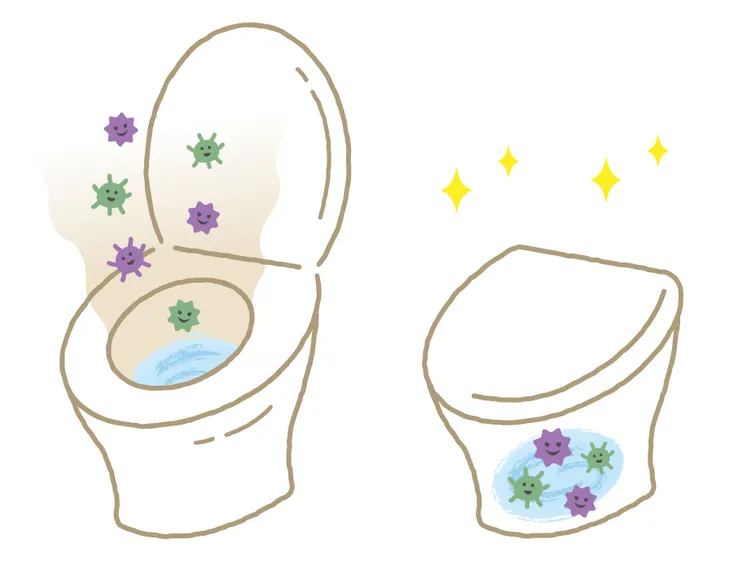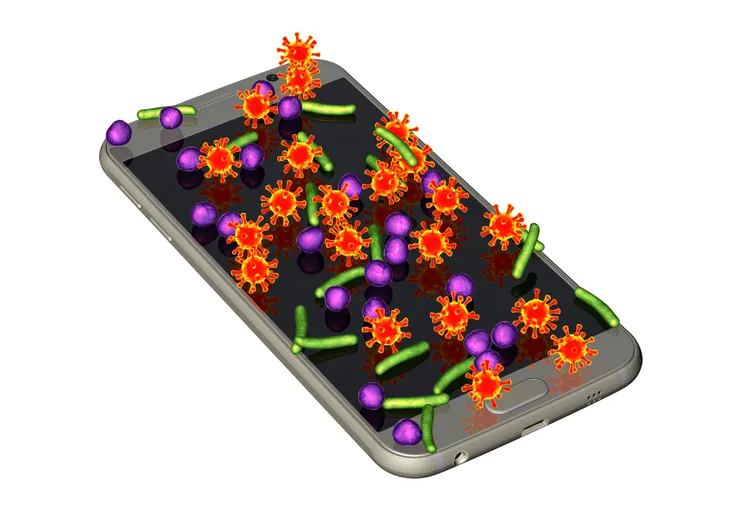Germs—be they viral infections, bacterial microbes, or super bugs waiting to take you out for an entire week—are invisible and brutal in their penetration of our lives.
However, in a world rife with germs just waiting to attack, many of us pass them back and forth unbeknownst via very common daily habits, like these…
Airplane Travel
Travellers beware, one of the biggest threats of airport travel are the germs onboard. There’s a reason why many eager travellers find themselves returning home with influenza, stomach flu, diarrhea, and intestinal ailments shortly following a vacation. Norovirus is one contagious, bacterial disease that lurks on planes and moves freely between flight attendants, food trays, beverage cups, restrooms, stow away compartments, and passengers. To avoid infection, avoid hand to hand contact, wash your hands or use hand sanitizer frequently onboard, and also use a straw to drink your beverages.
 Shutterstock/Jaromir Chalabala
Shutterstock/Jaromir ChalabalaYour Bathroom
Germs love moist, humid environments, and after you shower, germs can live on the surface of your tub and even in the folds of your plastic shower curtain for quite some time. And that beige film that forms around your tub? That’s actually harmful bacteria living off excess hair and skin cells left behind from your last shower. So do yourself a solid and opt for a fabric shower curtain that you can remove and wash on hot to kill bacteria.
Elevators
Before you opt for the elevator at your office building or condo instead of taking the stairs, consider the many germs awaiting you in that packed, claustrophobic lift. What’s worse is that when occupied with a single or pair of fellow travelers, germs are easily spread via sneezing, coughing, rubbing the eyes, and even breathing. You can also easily catch a flu or virus through hand to mouth contact by pressing your floor button.
Dining Out
I know the bathrooms at restaurants advise the staff to “please wash hands before returning to work.” However, one of the most common germ transfer sites is hand to food contact. Those who prepare your food, garnish your food, or serve your food can easily contaminate what you’re about to chow down on for that special birthday dinner or team building work lunch.
 Shutterstock/YAKOBCHUK VIACHESLAV
Shutterstock/YAKOBCHUK VIACHESLAVSmart Phone Use
Cell phones are a hot zone for viral infections. In fact studies confirm these germy, communication devices are bug-ridden from mouthpiece to keypad. So basically, every time you make a call or punch in a quick text message, you’re transferring germs from your hands to your phone to your mouth and back again, which is why it might be difficult to shake that winter flu. Going forward, try sanitizing your smart phone using damp (not wet) disinfecting wipes every few days.
Contact with Children
Kids are cute, but they are also germ factories. As babies, your little one’s diaper is a hotbed of bacteria that can easily pass from baby’s bottom to hands of changing and cleaning parent. The same goes for kids coming to and from daycares and schools, kids don’t have the same caution when they sneeze or cough open mouthed or into their hands and immediately transfer it with an innocent kiss, hug, or high five to mom or dad. That’s why adults need to be diligent with hand washing before eating and any hand to mouth contact.
Home Food Preparation
How you prepare a meal at home can open the Pandora ’s Box of germs. Consider the preparation of raw foods, particularly chicken, eggs, or other raw meats. The temperature you store and thaw them at can easily cause bacteria microbes (i.e., e Coli or Listeria) to grow and transfer to your hands, preparation utensils, cutting boards, and counter tops—leaving your final meal dangerously contaminated.
Pet Contact
You wrestle with your beloved pooch and snuggle your favorite feline on the couch and even in bed. You might even let Fido deliver a big, wet lick to your face (even across your mouth) when you return home from work. We all love our pets, but washing your hands after walks, pats, dinner duty, and do-do disposal will help you keep pet germs at bay.









